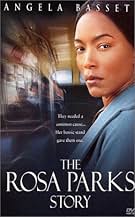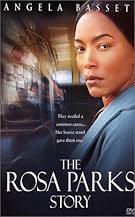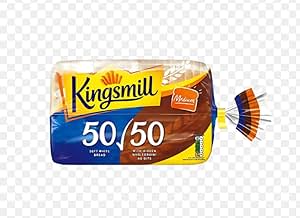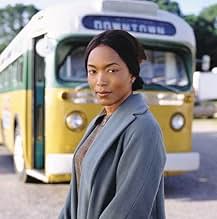IMDb RATING
7.2/10
1.1K
YOUR RATING
A seamstress recalls events leading to her act of peaceful defiance that prompted the 1955 bus boycott in Montgomery, Alabama.A seamstress recalls events leading to her act of peaceful defiance that prompted the 1955 bus boycott in Montgomery, Alabama.A seamstress recalls events leading to her act of peaceful defiance that prompted the 1955 bus boycott in Montgomery, Alabama.
- Nominated for 1 Primetime Emmy
- 8 wins & 8 nominations total
Dexter King
- Dr. Martin Luther King, Jr.
- (as Dexter Scott King)
Chardé Manzy
- Young Rosa
- (as Charde' Manzy)
Susan Savoie
- Virginia Foster Durr
- (as Susan Williams)
- Director
- Writer
- All cast & crew
- Production, box office & more at IMDbPro
Featured reviews
The performance of Angela Bassett and the other actors in the movie was great. They portrayed the parts of the story that most people do not know. It brought out so many emotions, I could hardly control them. Like Rosa, I'd refuse to leave my seat, [or rather my sofa], as well.
10tavm
In continuing to review in chronological order the achievements of African-Americans in film and television for Black History Month, we're now at 2002 with The Rosa Parks Story, written by Paris Qualles, directed by Julie Dash, and starring Angela Bassett who also serves as an executive producer. We follow the woman born Rosa McCauley's life story from when she was a child (as played by Charde Manzy) attending an all-colored-(as they were described as then)girls Catholic school with a Caucasian female teacher to her marriage to Raymond Parks (Peter Francis James) to her first confrontation with the mean white bus driver (Sonny Shroyer in a role very much different from deputy 'Dipstick' Enos on "The Dukes of Hazzard") to her arrest from that same driver with police backup. That first scene with Shroyer was really frightening with the way he treats her when she refuses to go to the back entrance to get back on because of the hard rain outside. Another intense scene is one that takes place after the famous incident when Rosa answers the phone that rings for a long time and looks shocked after she puts the receiver to her ear. Everything about Ms. Parks as performed by Bassett rings true here. Also fine is Mr. James as husband Raymond who's charming when he first courts Rosa even when she constantly refuses to see him and then is initially hesitant when he realizes the consequences of his wife's actions. And then there's the great Cicely Tyson, Miss Jane Pittman herself, who delivers perhaps the most inspirational speech as Leona McCauley to her daughter near the end of the movie. That and Dexter Scott King portraying his father Dr. Martin Luther make The Rosa Parks Story a very compelling movie biography. As an added treat, we see President Bill Clinton, in his second-to-last State of the Union address, acknowledging Ms. Parks in the audience and saying she can sit anywhere she wants! With all that said, I highly recommend The Rosa Parks Story to anyone with an interest in American history's darkest days and the good that resulted when someone did something to help put an end to it. And of course to any fan of Ms. Bassett. P.S. Peter Francis James is, like me, a Chicago native.
In this film made three years before her death at 92, Rosa Parks was given a most accurate portrayal of her life and the times she grew up in. One simple act of disobedience to an unjust and demeaning law sparked the conscience of the caring members of a nation.
I have to confess that I did not know much about Rosa Parks other than that act on Christmas Eve of 1955 when she refused to give up a seat on a bus to a white person because the Jim Crow laws demanded it. In fact I believe that most people think that she was just a department store seamstress which the civil rights movement used as a symbol against injustice.
Rosa Parks, born Rosa Louise McCauley in the area around Montgomery, Alabama was quite politically aware. Part of that came from her marriage to barber Raymond Parks played here by Peter Francis James. It may have looked like an ordinary black barbershop to a lot of people, but in fact it was a meeting place for what was deemed revolutionary activity by the segregationists in control. You could find all kinds of radical literature there, not on public display to be sure, but stuff put out by the NAACP and even the Communist Party. When Raymond had met and was courting Rosa in 1932 he was raising money for the Scottsboro case, the notorious one where several black homeless youths riding in a freight car during the depression, allegedly gang raped some white women who were in similar economic circumstances.
Rosa was the secretary of the Montgomery chapter of the NAACP which was not a paying job. Which was why she was working as a seamstress when her call from destiny occurred on Christmas. The woman had a history of civil rights activism that I was not aware of.
Angela Bassett does a fine job in capturing the hopes and dreams and frustrations of a woman who saw and wanted a lot more from life than what she was restricted to. You'll also see Dexter King play his immortal father Martin Luther King who first came to prominence during the boycott of the Montgomery Bus System that resulted from Rosa's arrest and fine.
It's now 64 years since Rosa Parks made a defiant act against injustice the symbol of the Civil Rights movement. The Rosa Parks Story is an absolute must for any young viewers who want to acquaint themselves with a triumph against an unjust way of life.
I have to confess that I did not know much about Rosa Parks other than that act on Christmas Eve of 1955 when she refused to give up a seat on a bus to a white person because the Jim Crow laws demanded it. In fact I believe that most people think that she was just a department store seamstress which the civil rights movement used as a symbol against injustice.
Rosa Parks, born Rosa Louise McCauley in the area around Montgomery, Alabama was quite politically aware. Part of that came from her marriage to barber Raymond Parks played here by Peter Francis James. It may have looked like an ordinary black barbershop to a lot of people, but in fact it was a meeting place for what was deemed revolutionary activity by the segregationists in control. You could find all kinds of radical literature there, not on public display to be sure, but stuff put out by the NAACP and even the Communist Party. When Raymond had met and was courting Rosa in 1932 he was raising money for the Scottsboro case, the notorious one where several black homeless youths riding in a freight car during the depression, allegedly gang raped some white women who were in similar economic circumstances.
Rosa was the secretary of the Montgomery chapter of the NAACP which was not a paying job. Which was why she was working as a seamstress when her call from destiny occurred on Christmas. The woman had a history of civil rights activism that I was not aware of.
Angela Bassett does a fine job in capturing the hopes and dreams and frustrations of a woman who saw and wanted a lot more from life than what she was restricted to. You'll also see Dexter King play his immortal father Martin Luther King who first came to prominence during the boycott of the Montgomery Bus System that resulted from Rosa's arrest and fine.
It's now 64 years since Rosa Parks made a defiant act against injustice the symbol of the Civil Rights movement. The Rosa Parks Story is an absolute must for any young viewers who want to acquaint themselves with a triumph against an unjust way of life.
The choir in the movie sounded very good. They should get credit for all the hard work that they put into the soundtrack of the film. They traveled for hours just to make it to the set. they set and waited for long hours, voices drained, and they still managed to sound incredible. they were talked about and criticized, but they overcame all the negative comments and still did their thing. they should at least appear on the credits. they stayed up all night on a school night just to record the soundtrack. that's dedication. the central high school show choir from Tuscaloosa, Alabama should get recognition for their incredible work and their outstanding voices. Mrs. Jocqualine Richardson, the director, does a wonderful job with these young kids.
I didn't plan to write a comment at first, but when I saw one big mistake the director did, I was compelled to write one as soon as I finished watching. I am surprised that no one at that time said anything to the director. It was so obvious.
This scene was about Rosa Parks who had to walk several miles in the rain at night, after the bus driver threw her out of the bus. She walked into her home without the wet umbrella. She was wearing some fancy looking dry coat, and her hat looks dry. Her shoes look shiny with no water drop or mud on them. Her hair looked fine and dry. When she took off her coat, her clothes also looked dry. Most importantly, after she took off her "wet" coat, her husband just hung it on the coat hanger with all the other dry coats. There was no water drops on the floor, either.
The casting director did a good job by picking those few good white actors. I especially like the one who worked at the voter registration office, she really acted well, had that look. I also liked the one who worked at the white only library. However, the director failed to tell us what happened eventually when Rosa parks took a bunch of children to a while only library. We only saw them trying to check out books, but what happened afterward? Were they allowed to check out the books or not? This is a good real life story. If it was done well, it could have made the audiences to cry, but it failed to do so. The first half of the movie was well directed. After she refused to give up her seat on the bus, the story failed to focus the whole movement. It spent most time on her personal life. It should have showed us how her action led to the whole civil rights movement, what happened at the court, what other blacks did other than refusing to ride the bus. And what happened to NAACP, those people just seemed to disappear from her life entirely.
This scene was about Rosa Parks who had to walk several miles in the rain at night, after the bus driver threw her out of the bus. She walked into her home without the wet umbrella. She was wearing some fancy looking dry coat, and her hat looks dry. Her shoes look shiny with no water drop or mud on them. Her hair looked fine and dry. When she took off her coat, her clothes also looked dry. Most importantly, after she took off her "wet" coat, her husband just hung it on the coat hanger with all the other dry coats. There was no water drops on the floor, either.
The casting director did a good job by picking those few good white actors. I especially like the one who worked at the voter registration office, she really acted well, had that look. I also liked the one who worked at the white only library. However, the director failed to tell us what happened eventually when Rosa parks took a bunch of children to a while only library. We only saw them trying to check out books, but what happened afterward? Were they allowed to check out the books or not? This is a good real life story. If it was done well, it could have made the audiences to cry, but it failed to do so. The first half of the movie was well directed. After she refused to give up her seat on the bus, the story failed to focus the whole movement. It spent most time on her personal life. It should have showed us how her action led to the whole civil rights movement, what happened at the court, what other blacks did other than refusing to ride the bus. And what happened to NAACP, those people just seemed to disappear from her life entirely.
Did you know
- TriviaDexter King, the third-born child of Rev. Dr. Martin Luther King Jr. and Coretta Scott King, plays his own father in this movie. This is the second TV movie about the Civil Rights movement that depicts MLK and that has one of his children paying a role in it; the first was 1999's Selma, Lord, Selma, in which the Kings' first-born child, Yolanda King, played a small role (Martin Luther King was depicted in that film by Clifton Powell).
- GoofsContrary to the events portrayed in the film, in "Miles of Smiles, Years of Struggle" (1982), E.D. Nixon states the bus boycott was his idea and that of all the ministers he contacted for support, Martin Luther King was the only one who was reluctant to support a bus boycott. When Nixon called King back and pointed out that he would be the only minister not supporting the boycott and that a meeting about it would be held in his church, King finally agreed to support the boycott.
- Quotes
Rosa Louise McCauley Parks: Why do you always push us around?
- ConnectionsFeatured in The 54th Annual Primetime Emmy Awards (2002)
Details
- Release date
- Country of origin
- Language
- Also known as
- Ride to Freedom: The Rosa Parks Story
- Filming locations
- Production companies
- See more company credits at IMDbPro
Contribute to this page
Suggest an edit or add missing content
































